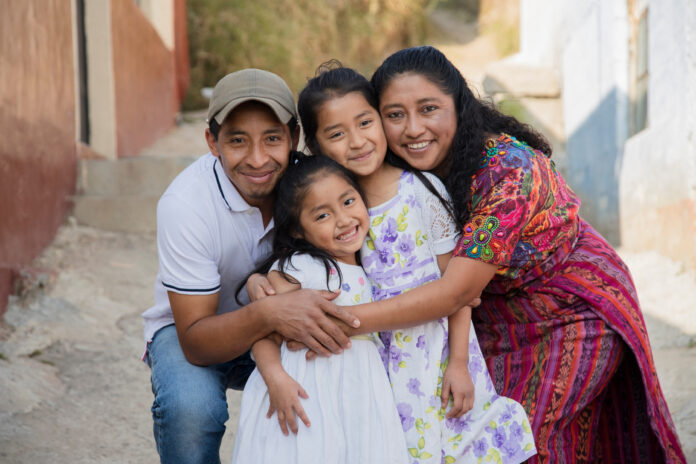
Canada is re-imposing visa requirements on Mexicans in its bid to curb the number of people coming to Canada who then try to illegally cross the border and enter the United States.
The new requirement went into effect Feb. 29 at 11:30 p.m. Eastern Time.
U.S. Homeland Security, which oversees border security and the enforcement of American immigration laws, has under the administration of U.S. President Joe Biden, repeatedly asked Canada to re-impose visa requirements for Mexican nationals to stem the flow of illegal immigrants across the Canada-U.S. border.
“We talk about this issue and many issues that impact the migration of people,” U.S. Homeland Security Secretary Alejandro Mayorkas told CBC’s chief political correspondent Rosemary Barton in an interview early last year.
“I think that’s a decision that the Canadian officials are going to make.”
Read More Canada Immigration News
Application Consent Form Needed For OINP Immigration Applicants
Education Expert Says Caps On Canada Study Permits A ‘Blunt Instrument’
British Columbia Issues 189 Canada Immigration Invitations In New PNP Draw
Quebec Premier François Legault has also urged Ottawa to re-impose visa requirements on Mexican nationals in a letter sent in mid-January in which he called the federal government to stem the flow of refugees into Quebec and to compensate the province for its costs.
According to Legault, Quebec simply cannot handle anymore refugees.
“Mexican nationals represent a growing proportion of the asylum seekers arriving in Quebec, the possibility of entering Canada from Mexico without a visa certainly explains part of the flow of asylum seekers,” the premier wrote.
Under the new rules announced Thursday, Mexican citizens who do not hold a valid American, non-immigrant visa or who have not held a Canadian visa in the past 10 years now need to apply for a Canadian visitor visa.
Those who do hold a valid American, non-immigrant visa or who have not held a Canadian visa in the past 10 years and are travelling by air on a Mexican passport can apply for an electronic travel authorization (eTA).
Watch Video
“We will continue to welcome Mexican temporary workers, students, visitors and immigrants who bring diverse skills and important contributions to our economy and communities,” said Immigration Minister Marc Miller.
“We strive for balance between the movement of people between our two great countries and the need to relieve pressure on our immigration system so we can provide protection to those who need it the most.”
In the past few years, the number of asylum claims made by Mexican citizens that are refused, withdrawn or abandoned has spiked, reaching a record high last year. Roughly 60 per cent of all asylum claims made by Mexican nationals last year were either rejected by the Immigration and Refugee Board of Canada or withdrawn or abandoned by the applicant.
Former Conservative Prime Minister Stephen Harper created a visa requirement for Mexicans coming to Canada in 2009. But current Prime Minister Justin Trudeau’s Liberal government, which has been very bullish on immigration, relaxed that requirement in 2016.
In an apparent quid pro quo, the Trudeau government nixed the visa requirement on Mexican nationals in exchange for the opening up of Mexico to Canadian beef products.
“I’m also happy to announce that Mexico has agreed to open their domestic market to all Canadian beef products,” said Trudeau in making that announcement in 2016. “This is a move that will support Canadian farmers and Canadian families.”
The unintended consequence of lifting that visa requirement as an explosion in the number of asylum claimants from Mexico. Those rose from 260 claims in 2016 to 23,995 last year.
Mexicans Accounted For 17% Of All Asylum Claims Made Last Year In Canada
In 2023 alone, asylum claims from Mexican citizens accounted for 17 per cent of all claims made that year from all nationalities around the world.
Mexican citizens holding a valid work or study permit can still travel by air to Canada with their existing eTA as long as they remain valid and they can continue to study or work in Canada based on the validity and conditions of their permit.
Those already in Canada on an eTA can stay for as long as they are authorized – up to six months from the date they arrive in Canada – but must have the proper travel documents, a visa or new eTA, if they plan to leave and return to Canada.
“All eTAs issued to Mexican passports before 11:30 p.m. Eastern time on Feb. 29, 2024, will no longer be valid, except for eTAs linked to Mexican passports with a valid Canadian work or study permit,” notes Immigration, Refugees and Citizenship Canada (IRCC).
Most approved visa applicants receive multiple-entry visas, which allow them to visit Canada as many times as they want, for up to 10 years, or until their passport expires.
The eTA is a digital travel document that most visa-exempt travellers need in order to travel to or transit through Canada by air. The IRCC first began expanding its eTA program to eligible citizens from visa-required countries in 2017. Mexico will now be among 15 countries whose citizens can to fly to Canada on an eTA, instead of a visa, if they meet certain requirements.

